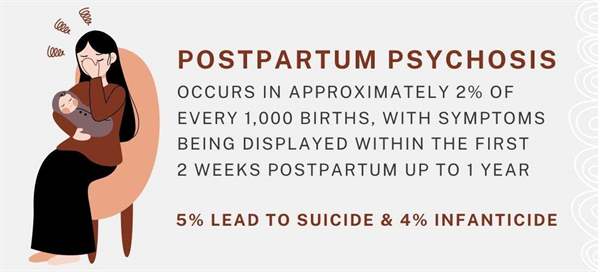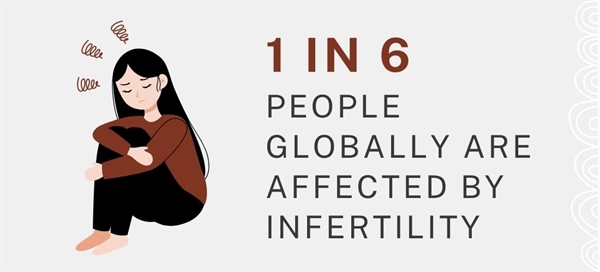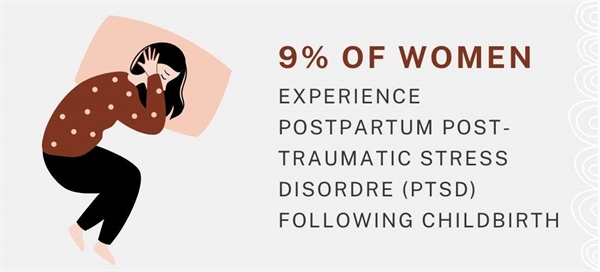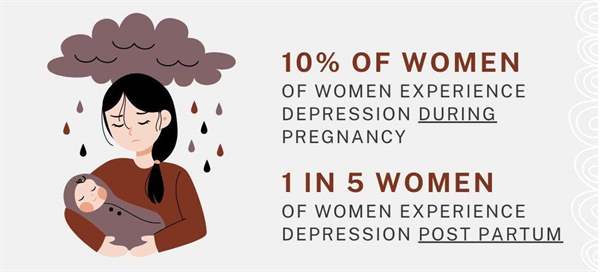Published
on
May 19, 2023
| 1,310 views
| 1 follower
members are following updates on this item.
.jpg?width=1000)
May is Maternal Mental Health Month and provides opportunity to raise awareness about the challenges and joys of motherhood. One of the greatest pleasures of being a family medicine physician is watching patients transition from being independent humans to “a family”. There is so much hope, love, and often anxiety associated with this period of life. Becoming a mother is a life-changing experience that brings about a range of emotions, inspires personal growth and self-discovery, and pushes us to explore our strengths, resiliency, and weaknesses.
As we enter springtime in Interior Alaska, it conjures feelings of transition, optimism, and newness as we shed the cold of winter and await the return of summer. For many of us, this transition of seasons comes with a ticking timeline and to-do list to maximize the summer season: yard work and house chores, summer camp and sports games, spending time with family and friends, and being outdoors as much as possible. Becoming a mom is a similar transition to our change of seasons, drawn out over time with the ups and downs of excitement, newness, physical changes in our bodies, joy, challenge, sleep deprivation, and modification of priorities.

The journey to motherhood can take many turns. For some it comes easily, and some have the added strain of infertility and alternative family planning. Despite these unique paths, the emotional connection between a mother and her child is powerful and transformative, with its own set of highs and lows that deserve recognition and support. Motherhood is a journey of growth and adaptation, and each stage presents unique challenges that eventually pass. When your body or heart tells you, you are a mom, your life takes a different trajectory. That moment for me was seeing my first child kick his legs in a particular manner after being born, and the familiarity with the movement in utero told me I already knew this child. Up to that moment, I had an anxiety that surrounded my ability to care for him without knowing him. I was changed from that moment forward because I was no longer an individual; I was physically connected to this tiny human.

As a new mom with a colicky baby who didn't sleep and didn't eat well, I received a kernel of parenting advice from a flight attendant who was watching me bounce my crying 4-week-old for hours on a plane, "Remember honey, it's always just a stage." As a mom of three, I've often leaned on that advice when I carry my kids out from a restaurant in a full-on tantrum or when I get a call from daycare/school about one of their behaviors. In these moments, I remind myself again, this is “just a stage” and often find solace in sharing a laugh (or tears) with my partner or a friend.

With the complexity of our brains, both ends of the emotional spectrum can be true, leading to internal conflict. It is natural to love your child more than you’ve ever loved before and to also be sad at the loss of your prior self. It is also natural to have immense joy at the baby gurgles and smiles and squishiness and wish you weren’t experiencing it in the middle of the night. The reason for the highs and lows is physiologic and environmental, induced by hormone swings and sleep deprivation. Our bodies are remarkable in that the hormonal needs to grow a human are provided; however, it can make us feel out of control and lead to depression and anxiety that is sometimes severe enough to need medical attention. Prenatal and postpartum depression and anxiety are experienced by 1 in 5 women. These conditions can manifest as overwhelming sadness, persistent anxiety, loss of interest, and difficulties bonding with the baby. In addition, sleep deprivation is a significant influence during an already complicated experience due to hormones. Sleep deprivation can cause mood swings, difficulty concentrating, and physical exhaustion making it difficult to care for yourself and your baby.

Isolation and loneliness are common experiences for new mothers, illuminating the importance of connection and support from others. Taking care of oneself and maintaining a sense of identity can be extremely challenging for many while learning to become a mother. New mothers tend to have a deep sense of guilt when they do choose to take time for themselves. It’s important to remember that by taking care of oneself, you can better care for your baby.
Maternal Mental Health Month serves as a reminder to nurture and prioritize mothers' mental well-being. While motherhood brings immeasurable joy, fulfillment, and self-discovery, it also presents challenges that can impact a mother's mental health and ability to care for their baby. By acknowledging motherhood's highs and lows, we create a space for open conversations, support, and understanding. If you are struggling or know someone who is, you must reach out for help. Your primary care provider, obstetric provider, infant's provider, or helplines like the National Maternal Mental Health Hotline at 1-833-TLC-MAMA (call or text) can provide assistance and guidance. By fostering open conversations, giving support, and promoting understanding, we can create a nurturing environment that prioritizes the mental well-being of mothers and our families. And remember, it is always “just a stage”.
Page Options